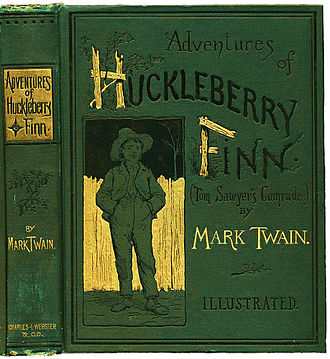Finn Last Name Origin, History, and Meaning
Where did the surname Finn come from? What does the surname Finn mean? Discover the history and meaning of the last name Finn and family migration on YourRoots Map.
Surname Finn Origin: What does the last name Finn mean?
The surname Finn has diverse origins. It can be traced back to the Irish Ó Finn, meaning "descendant of Fionn," which translates to "white" or "fair-haired." Additionally, it may stem from the Old Norse Finnr, a personal name linked to a byname, or from compound names incorporating this element. Another variant of Finn is a German surname denoting individuals from Finland. Records suggest that the Finn surname emerged in England during the early 16th century, gaining traction in the 18th century, notably in Ireland. By the 20th century, the Finn surname had spread globally, with significant concentrations in the United States, Ireland, England, Canada, Australia, and New Zealand.
According to YourRoots data, the Finn surname has a longstanding presence in the United Kingdom starting from the early 16th century. Over the following centuries, it expanded to various countries, including the United States, showcasing its widespread distribution. Today, the Finn surname persists in multiple nations worldwide, illustrating its enduring legacy and global prevalence.
Finn Last Name History: Where did the last name Finn come from?
Origin of Finn Surname: Where does the last name Finn originate from?
According to YourRoots data, the surname Finn first appeared in records from England around the early 16th century. Please note that this reflects only YourRoots data for the exact Finn spelling and does not include other record sources or surname variations.
History of the Last Name Finn: What does the Finn surname history look like in the early days?
The Finn surname remained closely associated with England in the 16th and 17th centuries and saw significant growth in the 18th century, particularly in Ireland. YourRoots data also shows Finn family records in the United States during the 17th century, indicating global spread over the centuries.
Global Spread: Where can we find the Finn surname today?
By the 20th century, the volume of records with the Finn surname grew significantly in the United States. The Finn surname remains prominent in the United States, Ireland, England, Canada, Australia, New Zealand, and other countries around the world.
Explore Finn last name heritage and Finn surname origin based on YourRoots Map data
 VIEW THE ORIGIN OF SURNAME FINN
VIEW THE ORIGIN OF SURNAME FINNFamous People With Finn Surame?

Adventures of Huckleberry Finn
Mark Twain (November 30, 1835 – April 21, 1910) was an American author known for his novel "Adventures of Huckleberry Finn." Twain, born Samuel Langhorne Clemens, is considered one of the greatest American writers, with his work often tackling themes of race, society, and morality. His use of vernacular English and vivid storytelling style has left a lasting impact on literature and culture. Twain's legacy as a writer continues to be celebrated for his contributions to American letters.

Neil Finn
Neil Mullane Finn (born May 27, 1958) is a New Zealand singer-songwriter and musician known for his work with Split Enz, Crowded House, and Fleetwood Mac. He is praised as popular music's "most prolific writer of great songs" by Ed O'Brien of Radiohead. Finn's career spans hit songs like "Don't Dream It's Over" and collaborations with diverse musicians. Raised in a musical family, he learned guitar and piano at a young age, eventually forming bands like Crowded House with his brother Tim. Finn's contributions to the music industry have solidified his place as a respected artist and songwriter.

William Finn
William Alan Finn (Feb 28, 1952 – Apr 7, 2025) was an American composer and lyricist known for his acclaimed musicals like Falsettos, A New Brain, and The 25th Annual Putnam County Spelling Bee. Born in Boston, Finn's work often explored themes of family, belonging, and loss, drawing from his own experiences as a gay, Jewish man. He won multiple Tony Awards for his exceptional talent in composing music and writing lyrics. Finn's contributions to the world of musical theater continue to be celebrated, with his impactful storytelling and memorable songs leaving a lasting legacy in the entertainment industry.

Craig Finn
Craig A. Finn (born Aug 22, 1971) is an American singer, songwriter, and musician known for being the frontman of the indie rock band the Hold Steady. With a knack for storytelling in his rock music, Finn has released solo albums and hosted podcasts exploring memory and creativity. Originally from Boston and raised in Minnesota, Finn's musical journey includes stints with bands like Lifter Puller and collaborations with various artists. His work spans genres and continues to captivate audiences with his unique style and lyrical prowess.

Tim Finn
Brian Timothy Finn (born 25 Jun 1952) is a New Zealand singer, songwriter, musician, and composer best known for his work with bands Split Enz and Crowded House. As a founding member of Split Enz, Finn wrote hits like "I See Red" and "Six Months in a Leaky Boat." He later found success as a solo artist with songs like "Fraction Too Much Friction." Finn has collaborated with artists like his brother Neil Finn and has received recognition for his contributions to music, including being appointed Officer of the Order of British Empire in 1993.
All images displayed on this page are sourced from Wikipedia or Wikimedia Commons.We use these images under their respective Creative Commons or public domain licenses. Wherever applicable, author attributions and license information are provided. If you believe an image is used incorrectly or outside its license terms, please contact us so that we can review and correct the issue.




.png)